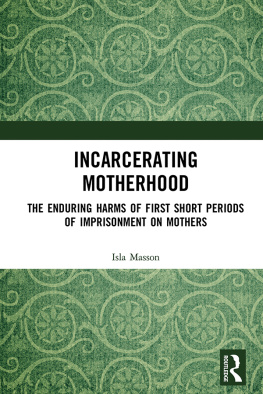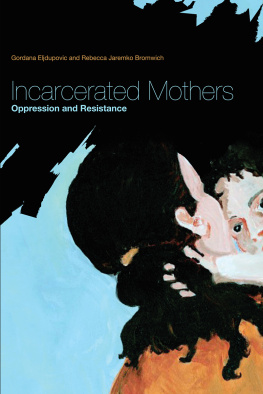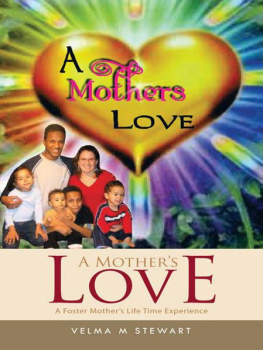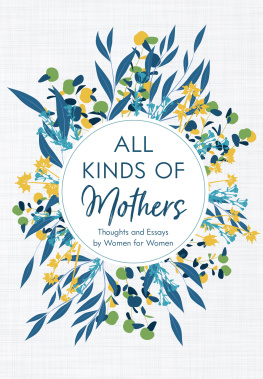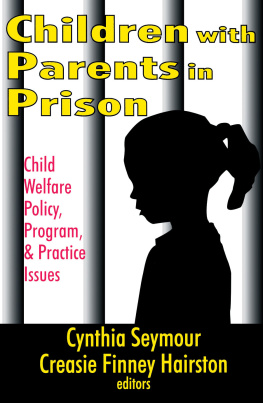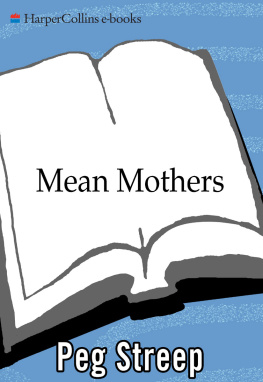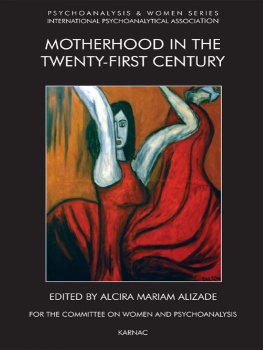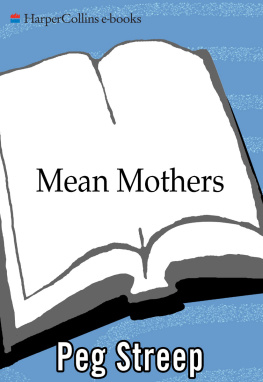Incarcerating Motherhood
Incarcerating Motherhood explores how an initial short period in prison can negatively impact mothers and their children. We have much yet to understand about the enduring harms caused by first-time incarceration, especially for minimal time periods and for mothers with dependent children. With large numbers of female prisoners currently incarcerated for short periods in England and Wales (either on short sentences or remand), many of whom are primary caregivers, this book asks: what kind of impact does this imprisonment have on both parent and child in the long term?
Based on original research, the experiences of 16 mothers are presented to voice the material, physical and emotional consequences of short-term imprisonment. The book explores to what extent these mothers lose their sense of identity in a short space of time, whether this continues to affect them post-custody, and what level of support they are provided during and post-custody. This book also explores what bearing the initial separation and the care provided during the mothers absence will have on their childrens lives, as well as whether the effects of imprisonment on the mother also increase the vulnerability of her children.
Incarcerating Motherhood provides a platform for readers to hear how a short sharp shock can cause enduring harms to an already vulnerable group in society and how even short-term imprisonment can have long-lasting and multi-dimensional consequences.
Isla Masson is a Lecturer in Criminology at the University of Leicester. Her research interests predominantly lie in incarceration, female offending and restorative justice. She previously co-led a project with the Restorative Justice Council funded by the Barrow Cadbury Trust, she currently volunteers with the Independent Monitoring Board at HMP Onley, co-founded the Women, Families, Crime and Justice Network with colleagues at De Montfort University, and has helped create a social enterprise at HMP Ryehill.
Incarcerating Motherhood
The Enduring Harms of First Short Periods of Imprisonment on Mothers
Isla Masson
First published 2019
by Routledge
2 Park Square, Milton Park, Abingdon, Oxon OX14 4RN
and by Routledge
52 Vanderbilt Avenue, New York, NY 10017
Routledge is an imprint of the Taylor & Francis Group, an informa business
2019 Isla Masson
The right of Isla Masson to be identified as author of this work has been asserted by her in accordance with sections 77 and 78 of the Copyright, Designs and Patents Act 1988.
All rights reserved. No part of this book may be reprinted or reproduced or utilised in any form or by any electronic, mechanical, or other means, now known or hereafter invented, including photocopying and recording, or in any information storage or retrieval system, without permission in writing from the publishers.
Trademark notice: Product or corporate names may be trademarks or registered trademarks, and are used only for identification and explanation without intent to infringe.
British Library Cataloguing-in-Publication Data
A catalogue record for this book is available from the British Library
Library of Congress Cataloging-in-Publication Data
A catalog record has been requested for this book
ISBN: 978-1-138-74006-8 (hbk)
ISBN: 978-1-315-18379-4 (ebk)
Typeset in Bembo
by Wearset Ltd, Boldon, Tyne and Wear
Contents
There is a long list of people in my life, without whom this book would not have been possible. Each and every one of you has helped me get to this point, thank you.
I would first like to thank the mothers who agreed to be interviewed for this research. I thank you for your time and honesty. I hope that this research has done your experiences justice.
I would also like to thank my supervisor, Professor Elaine Player. Your unlimited time, thoughts, and cups of tea and ginger biscuits got me through the PhD thesis.
Special thanks are reserved for my new colleagues and friends at both the University of Leicester and De Montfort University, who encouraged what felt like an impossible task of converting this work into a book.
I owe immense gratitude to my family and friends, who supported the initial thesis as well as the book conversion. You did a wonderful job of putting up with me through difficult times, listening when I needed an outsiders opinion, and distracting me when I needed it most. I am particularly grateful to my father, who has supported me in so many ways and always provided the right amount of encouragement, as well as my partner Tom, who held an unquestioning belief that the book would be done; I am so grateful to have you in my life.
Last but most definitely not least, Xander; you are a beautiful ray of sunshine, who we are incredibly proud of. We cannot wait to see how your life unfolds.
I would like to dedicate this work to two very important people, who unfortunately are no longer in my life. First, Papa, who took great pleasure in all his familys achievements, had an amazing work ethic and was a massive inspiration to us all. Second, mum: you were the kindest, most generous person, who taught me to always look for the positives in life and in people; you taught me everything I know about being a good mother. I miss you both so very much.
Prisons are seen as being in a permanent state of crisis, with concerns expressed about overcrowding, poor conditions, disorder and riots (Bulman, 2018b; Maidment, 2018; Perry, 2014). According to the Ministry of Justice (MoJ) (2013g: 2), as a result of tougher sentencing and enforcement outcomes, more people are being incarcerated in England and Wales than ever before. For example, the prison population nearly doubled in size between 1993 and 20181 (MoJ, 2016; 2018l). The outcome of this expansion continues to be higher reconviction rates2 (MoJ, 2018n), with significant social costs, and higher expenditure compared with sentences in the community3 (MoJ, 2017a; NOMS Women and Equalities Group, 2012; Prison Reform Trust (PRT), 2010c). With the considerable financial cost of prisons, many feel the expenditure on prisons is drawing resources from other parts of the criminal justice system, and creating strain throughout the system (Hough, Jacobson and Milie, 2003: 3). This is especially the case as budget cuts are being made throughout the criminal justice system (CJS) (HM Treasury, 2017).
In England and Wales, prison is deemed to be our most severe punishment; however, there are a number of fundamental problems with how the use and purpose of the prison has changed. There has been a shift from using prisons to reform offenders, to protecting the public by managing the risk prisoners pose (Garland, 2001). In Culture of Control, Garland (2001) argues that in the past few centuries there has been a reinvention of the prison: we have witnessed changing penal fashions with various governments, with evaluations ranging from prison is an expensive way of making bad people worse to prison works (Baker, 1996: 639). Without clear direction on the purpose and best use of prison, the prison crisis will continue.
Although there has been increasing research on prisons (for example, Bennett, Crewe and Wahidin, 2007; Crewe, 2009; James, 2003; Liebling and Arnold, 2005), this remains disproportionately on mens experiences, as they continue to account for the vast majority of the prison population (MoJ, 2018e). Despite the recent identification of women prisoners distinct, gendered needs, at best they remain marginal to the study and practice of imprisonment (Moore and Scraton, 2014: 1). Similarly, when the literature focuses on the children of incarcerated parents, it often does not differentiate whether it is a mother or father incarcerated. However, it is argued that women who offend are often seen as doubly deviant and therefore punished twice by the CJS initially for breaking the law and then for breaking traditional gender roles (Carlen, 2002). The literature also suggests that men and women enter prison with very different life experiences, in terms of both offending history and vulnerabilities. For example, it is widely reported that many female prisoners have experienced high levels of trauma, as both children and adults (HM Prison Service, 2004; Powell, Ciclitira and Marzano, 2017) compared with the general female population and male prisoners (Williams, Papadopoulou and Booth, 2012). Half the women in the Surveying Prisoner Crime Reduction (SPCR4) sample reported observing violence at home as a child, and over half (53 per cent) reported emotional, physical or sexual abuse as a child (Williams

